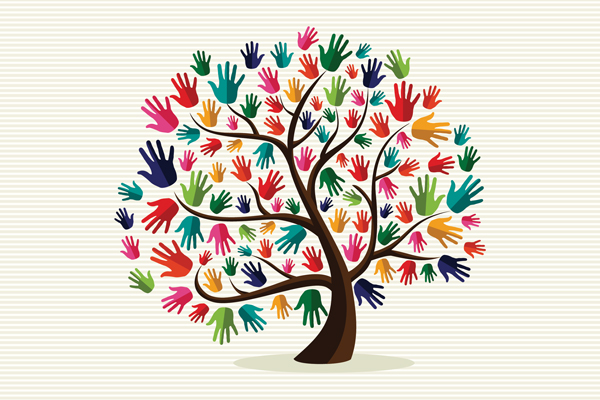Tech moguls, actors and older investors may be the iconic faces of philanthropy, but more millennials are joining the giving scene and putting a different spin on it.
According to a 2018 report on next-generation giving from Blackbaud, a developer of software for philanthropic organizations, millennials donated just 14% of total charitable-giving dollars over the prior year. Even so, their donations added up to a not-too-shabby $20.1 billion. Nearly 51% of the United States’ 67.1 million millennials are self-reported donors.
Millennials give substantially more than members of earlier generations, although they’re somewhat less likely to make any donation at all, concluded Princeton University researchers Peter Koczanski and Harvey S. Rosen in a study published in May that controlled for differences in age, income, wealth and other variables.
Most millennials won’t be throwing big money to charity anytime soon. Some are still on their parents’ phone plans. They may be paying off student loans, buying houses and funding college savings for their kids. But philanthropy professionals are taking the time to get to know this generation and encourage financial advisors to do the same.
It’s really important to understand millennial donors because “they’re going to increasingly be exercising influence and giving at higher levels,” says David Callahan, founder and editor of the media site Inside Philanthropy. Millennials are generating their own wealth, and they’re also starting to come into significant assets through “the massive intergenerational wealth transfer that’s estimated to run into the trillions of dollars,” Callahan adds.
Millennials also want more help navigating the philanthropic world. According to a multigenerational study of entrepreneurs that was released in May by public charity Fidelity Charitable, 84% of the millennial cohort (as opposed to half of the baby boomers) have discussed philanthropy with their advisors. But 78% of millennial business owners say they wish they had more guidance to make smarter giving decisions.
The study also found that millennial entrepreneurs are more highly engaged and committed to philanthropy. More than four-fifths (81%) say giving is a very important activity in their lives, compared with 57% of Gen Xers and 48% of baby boomers. The millennials’ median annual donation was $13,654 in 2017—more than twice that of Gen X and boomer entrepreneurs.
Karla D’Alleva Valas, head of fund-raising and distribution at Fidelity Charitable, thinks the findings have implications for millennials in general. Although young entrepreneurs who started a business in a garage or dorm room and have already sold it are “in a different part of their journey,” she says, “millennials are increasingly contemplating philanthropy, and they’re increasingly incorporating giving into their lives.”
Millennials tend to approach philanthropy differently than previous generations of givers. They’re less likely, says Callahan, to be interested in supporting the type of legacy institutions their parents may have faithfully donated to, such as local museums and the symphony, and more likely to be attuned to issues of social justice, climate change and other societal challenges.
The New Face Of Giving
August 1, 2019
« Previous Article
| Next Article »
Login in order to post a comment









